Young Professionals Seminar Barcelona 2017: presentation summaries
Projecting the next decade for real estate
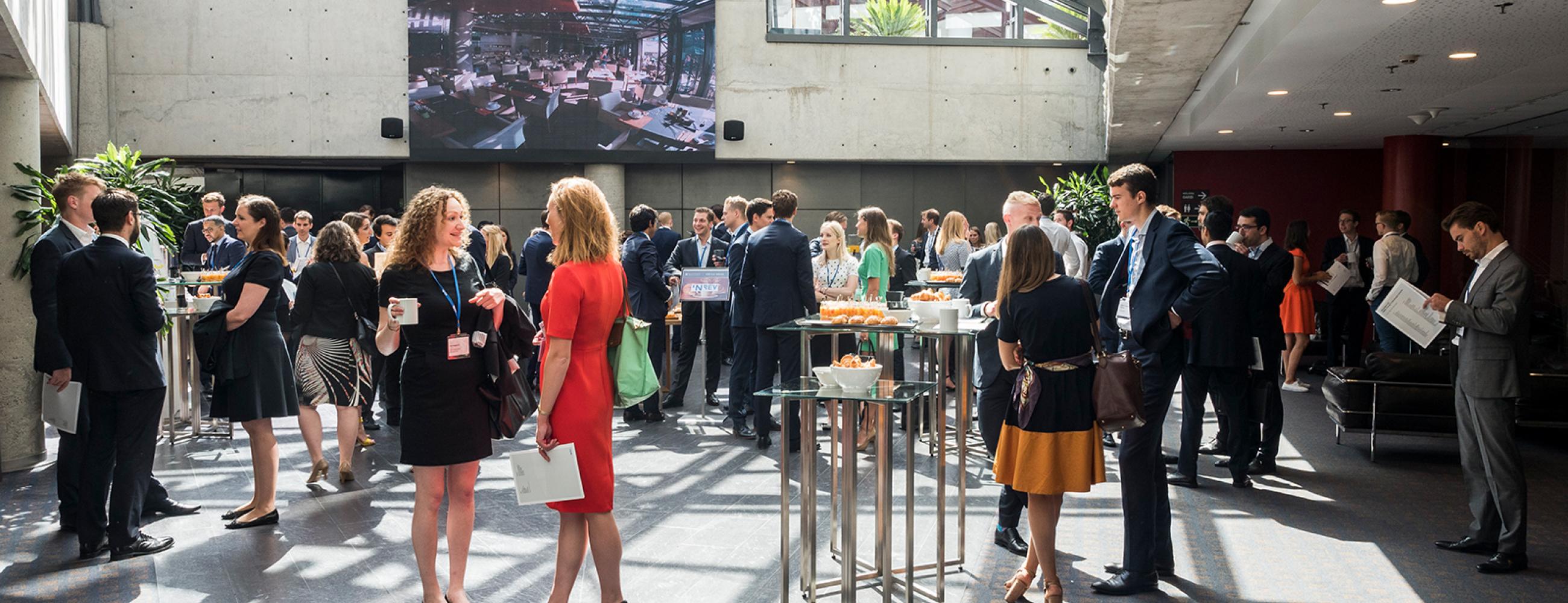
Over 140 real estate professionals came together in Barcelona for the tenth annual INREV Young Professionals’ Seminar to reflect on the past and project the future for non-listed real estate. Gabi Stein, Tishman Speyer and Jose Pellicer, Rockspring Investment Managers energetically moderated the event which brought together Oxford economists, insights on the impact of technology and tours of Barcelona old and new. Over half of the delegates were attending the event for their first time, and the highest percentage had 1-3 years of experience in the industry, bringing a fresh outlook to the event.
The next decade will bring a lot of change for real estate. Despite creaky risks in the economy, Andrea Boltho asserted that the Chinese always get it right, and politics will save the euro. Applying a traditional technical analysis approach, Andrew Baum revealed that we are very close to a mild downturn, and the audience projected a similar outcome using fundamental analysis.
Daniel Susskind painted two pictures of the future and asked how to best use technology to optimise your tasks, rather than your job? This focus on tasks over jobs was also apparent in the office sector, which was presented by Peter Epping. Other office and retail trends included mixed-use and the use of technology to significantly reduce construction costs.
The highlight of the event for most attendees was a revealing interview with Ismael Clemente, who came from one of the poorest areas of Western Europe and built one of the leading real estate companies in Spain, while always staying true to his team and the rebel inside him. A presentation and panel lead by Serena Althaus further explored how real estate can become a more attractive industry for millennials, where panelists agreed that rebels should be better rewarded in the industry, but cautioned away from generalising an entire generation into ‘Millennials’.
The global economic outlook - Andrea Boltho
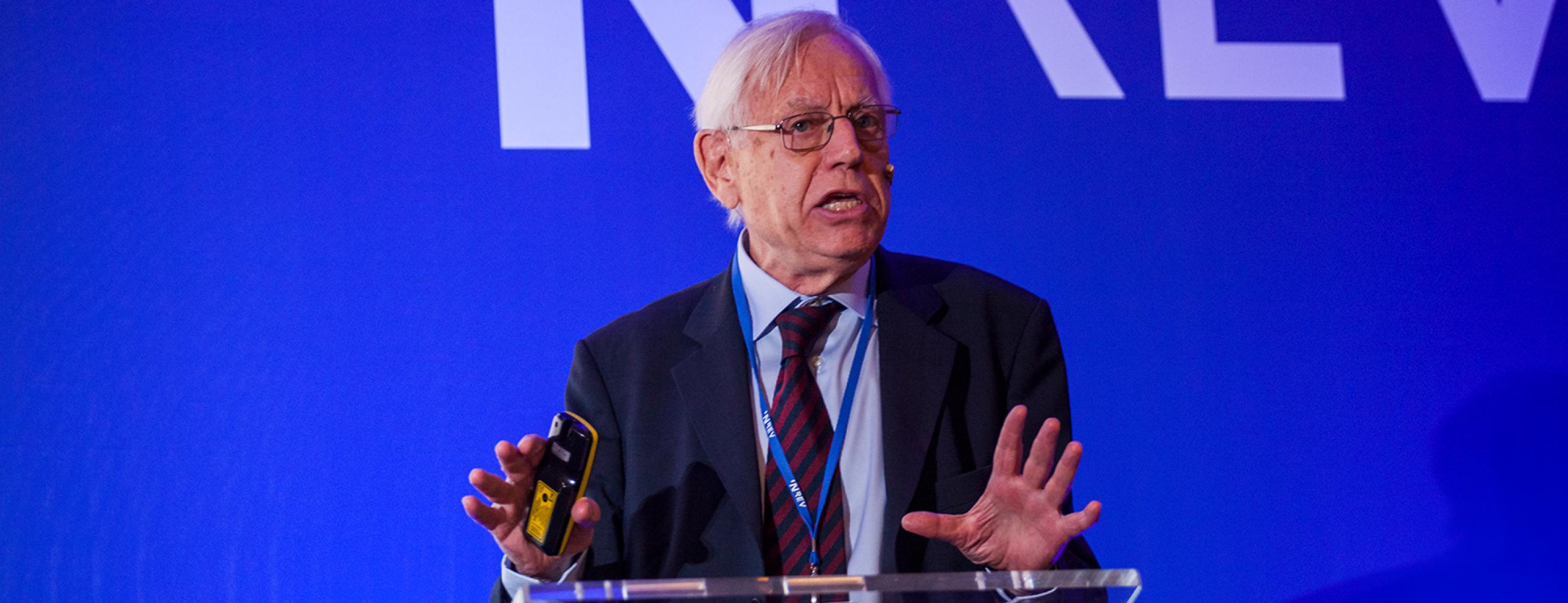
In his keynote presentation, Andrea Boltho, Oxford Economics, explored the state of the world economy, stating that ‘the news isn’t too bad’. He emphasised that China is crucial to the world economy and can and will do whatever it takes to keep their economy afloat, despite their current excesses. Though 30% of the delegates believed a Chinese financial crisis would occur in the next few years.
The audience was optimistic about the euro (92% of delegates believed the euro would still exist in 10 years’ time), but pessimistic about Brexit. Andrea believed Trumps’ economic policies – especially concerning the repeal of Obamacare and a potential trade war – would in fact have the biggest blow, while 45% of the audiences believed Brexit would have the largest repercussions on the European economy over the next few years.
In Europe, the four largest economies are doing well, but he emphasised that the gap between the north and the south was deep and, in important areas of perception of corruption and liberalization of the economy, deepening. He agreed with the audience that the euro would likely survive the next 10 years but due to fears of spiking currencies in the north rather than a genuine integration of north and south.
When asked if technology could help solve the divergence between the north and south, Andreas highlighted that technology is more likely to favour more industrialised economies over less industrialised ones, which would widen rather than close the gap.
Where are we in the cycle? Is property over-priced? - Andrew Baum
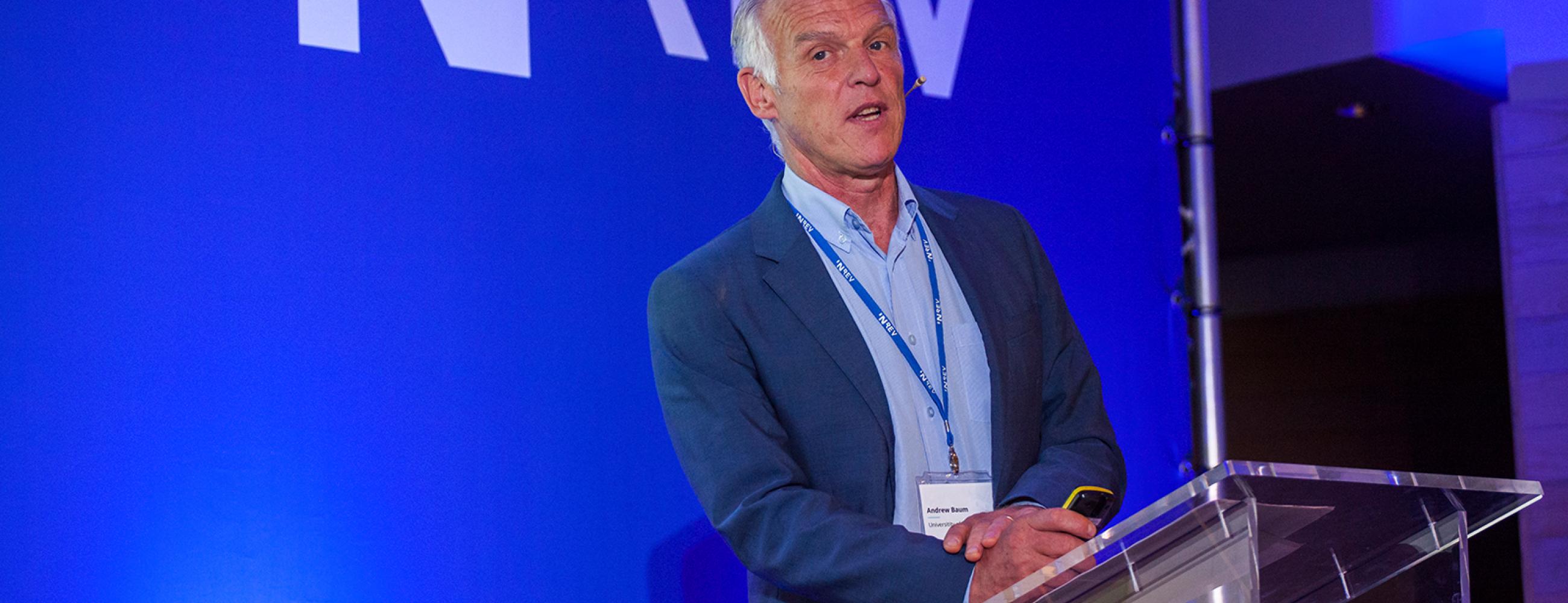
In an interactive presentation, Andrew Baum, University of Oxford, took the audience on a journey through two approaches to economics: looking at historical statistics to predict future patterns (technical analysis) vs. measuring current trends and projecting their expected growth (fundamental analysis).
According to technical analysis, Europe is on the precipice of a downturn. We are 8 years into an 8-year cycle, but the big bust won’t occur until 2024. However Andrew does not believe in technical analysis.
According to fundamental analysis, Andrew mapped out three scenarios based on whether bond yields will stay low, real yields will rise, and inflation expectations surge. According to the audience, interest rates will rise (64% of responses), inflation will stay the same (43% of responses, 36% believed inflation would rise and 21% fall), and property capitalisation rates will rise (45% or responses, 30% fall, 24% stay the same).
Plugging these responses into his formula, together they determined that property prices will decline.
Humanoids at work: Preparing for the workplace of the future - Daniel Susskind
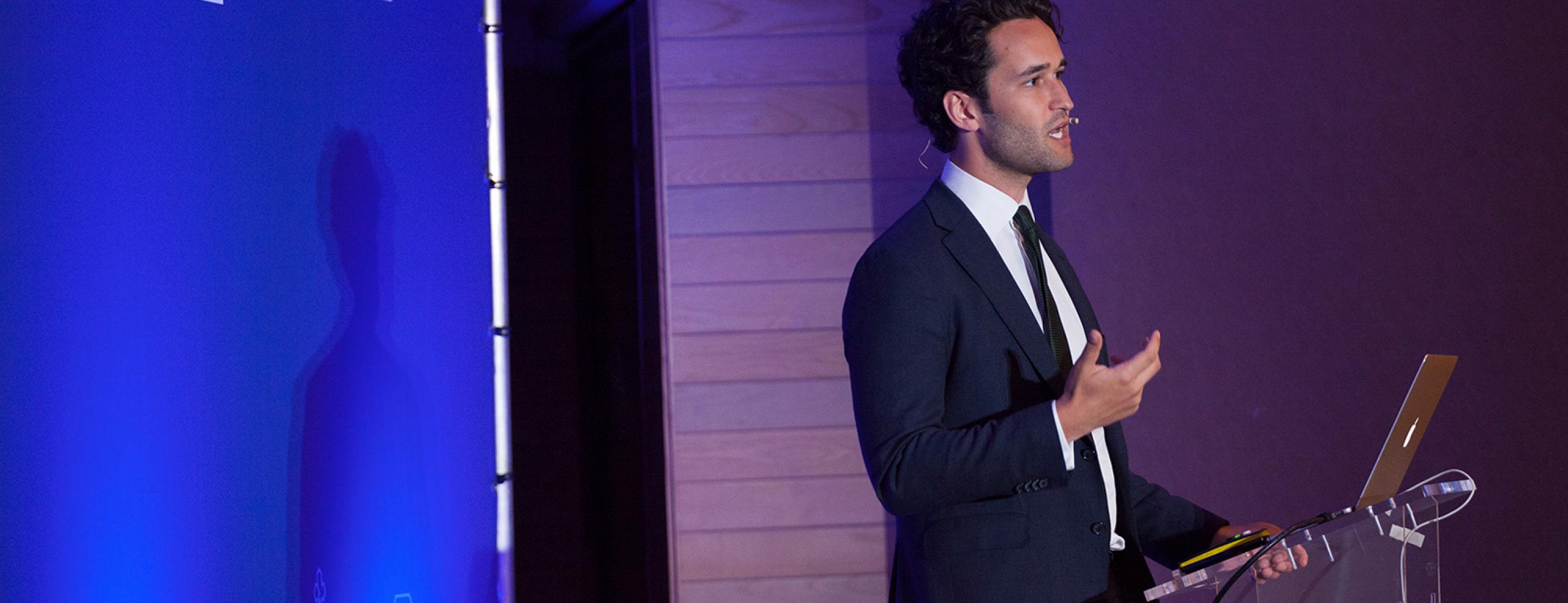
In his keynote presentation on the impact of technology on professions like real estate, Daniel Susskind described two possible futures revealed from a study he conducted with his father: (1) a more efficient version of what we have today, where technology optimises traditional ways we work and (2) a new world where technology actively displaces workers, solving problems better than traditional professionals.
Ahead of his presentation, the audience was optimistic – 80% of participants were excited about the rapid advances in technology, while only 20% found it to be worrying, and 74% felt the leaders in their business are sufficiently committed to technology.
Daniel used the example of two waves of Artificial Intelligence (AI) to demonstrate the importance of re-imagining the future with a blank sheet of paper. In the 1980s, the approach to artificial intelligence was to sit with an expert and replicate their thinking patterns with yes / no questions. The second wave of AI we are experiencing now sees increasingly capable thinking machines.
He warned that by 2020 the average computer will have the processing power of a human brain. By 2050, of the entire human race. How to beat the computer? He offered three tasks for the audience:
1. Explore new roles
2. Explore new models
3. Start with a blank sheet of paper – question the root of the problem
Sector specifics: Current status, future trends - Presentation & panel
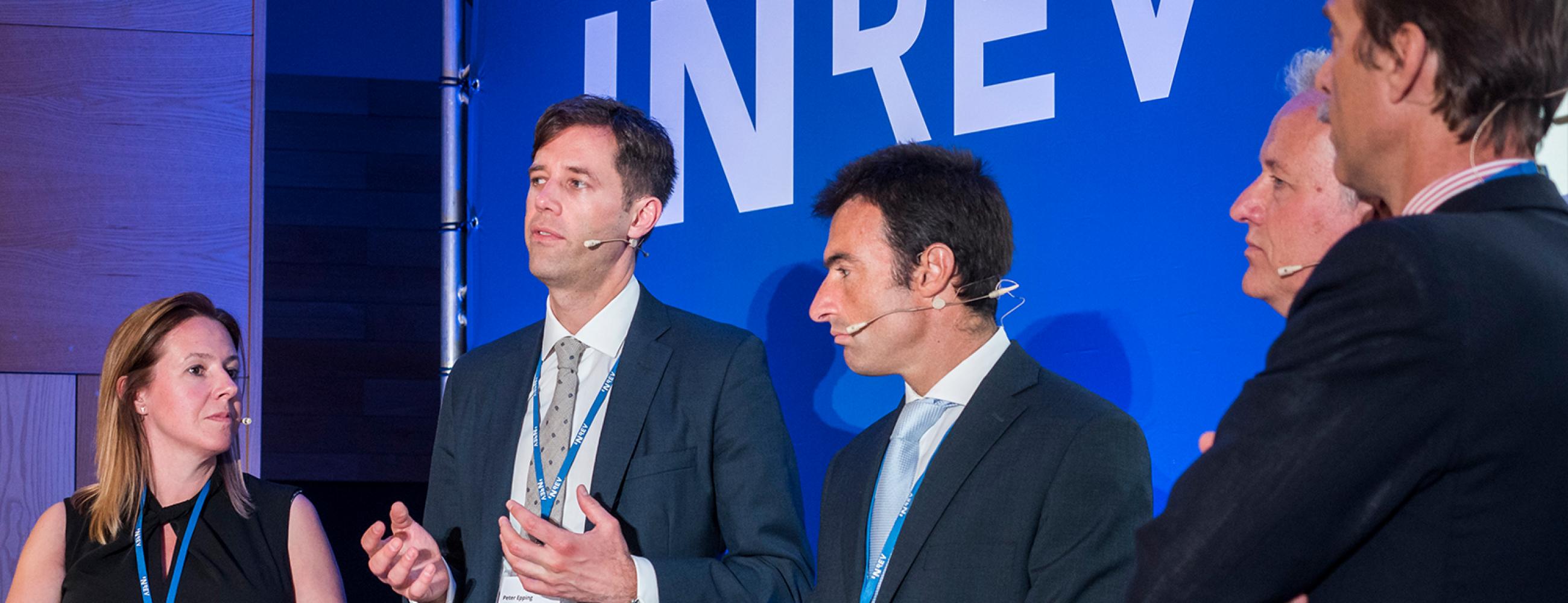
Following the theme of technological impacts on real estate, Gabi Stein opened the discussion on retail and office sectors by asking the audience which technology will have the biggest impact on how we work in the future? 50% of the audience agreed with the previous speaker and voted for computer processor technology, followed by battery technology (15%), 3-D printing (13%) and Virtual Reality (10%).
With this in mind, Peter Epping, Hines presented on current trends in office. Despite huge advances in communication technology, knowledge is still transferred fastest in direct person-to-person contact, and office trends reflect this. Workers prefer walkable cities where they can live work and play, with short commutes. Tech companies are also preferring to be clustered, and though initially less focused on core locations, as they grow they begin to compete for corporate, Grade A space.
The focus of office design is now centered around collaboration and the well-being of employees. Offices are now looking at tasks rather than jobs as the starting point for design – designing spaces for different types of activities. Peter also cited examples in Amsterdam, London, Berlin, Edinburgh and Barcelona where technology is a facilitator of collaboration and well-being, rather than a challenge to it.
Current design trends include biophilic environmental design (nature in the built environment), LEED / BREEAM (green building certification) and WELL (health and well-being of people certification). Some applications of these approaches include windows that allow an ideal amount of light and UV into the building, lighting that follows our natural circadian rhythm, and different outdoor spaces like terraces and undulating gardens.
Which retail sector will see the biggest growth rates in the next 10 years? 93% of participants expected online shopping to dominate. In his presentation on the retail sector, João Lelis, Sonae Sierra, agreed that the emergence of e-commerce was underway, but he does not see it as a threat to retail, but rather as a complement. Customers will always want to feel and have hands on experience, he insisted, and retail is shifting focus to leisure and showrooms. The trend is for mixed-use schemes, especially urban regeneration projects with leisure destinations.
Peter and João were joined by Theo Offringa, TKP Pensioen Real Estate Fonds and Marco Plazzotta, Poste Vita for a panel moderated by Gabi Stein. But the toughest question came from one of the young professionals: seeing that we learn best from failure, what was your worst investment decision?
Magic moments: 20 years in real estate - an interview with Ismael Clemente
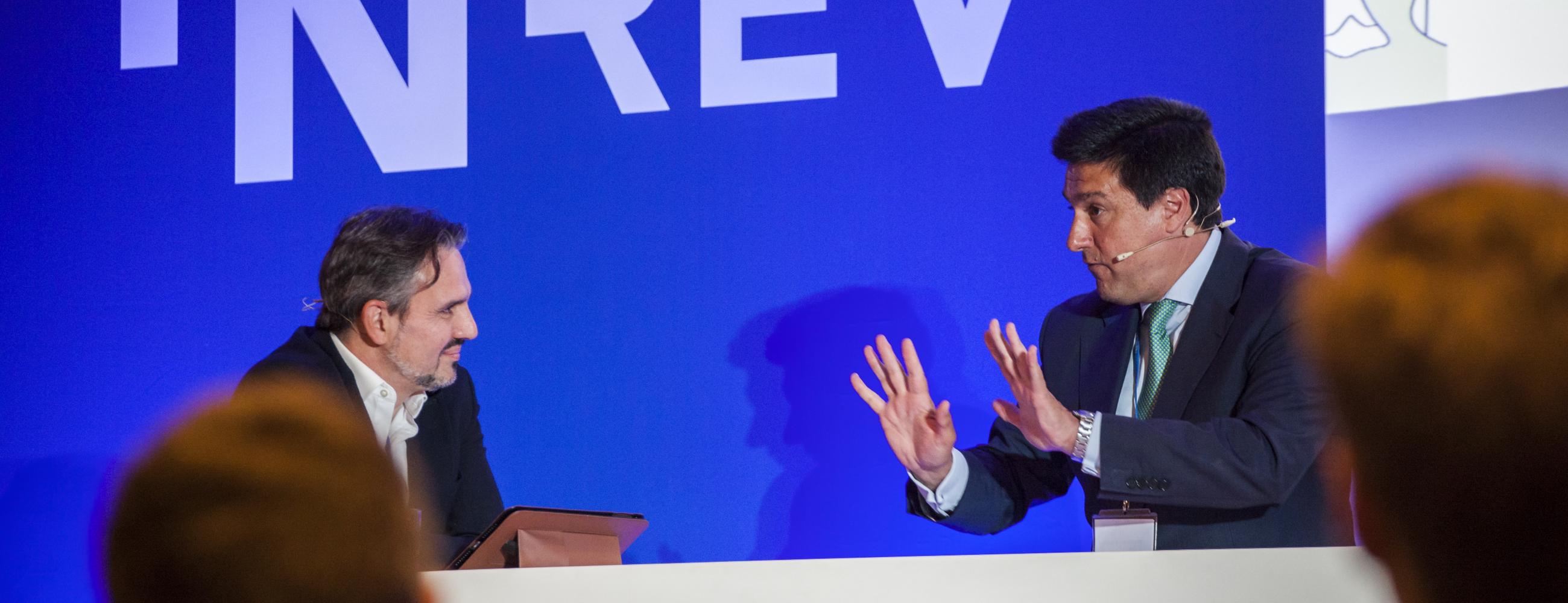
In this candidly open conversation with Jose Pellicer, Ismael Clemente, Merlin Properties took the audience on a journey through his career, proving that you can be very successful and be a good person at the same time.
Seeing Ismael Clemente now, you would never have guessed that he came from a village of 600 people with no running water until 1981. But as he put it ‘When you come out of a hole, you have a hunger for the rest of your life.’
After studying in Madrid and completing his military service, Ismael landed in a law firm where he met his wife. They couldn’t both stay at the law firm and be in a relationship, and so he moved to a bank where he learned about real estate. He quickly realised that to excel in his company he would be better-off in London, but he decided to stay in Spain where he wanted to raise his children and spend time with family – a career sacrifice he was very willing to take.
He enjoyed an exciting career in Spain, including the dramatic purchase of the Arts Hotel Barcelona from a Japanese investor, and selling-off of the bank’s assets in Spain just before the Global Financial Crisis – a move his boss at the time said would eventually result in his departure from the bank, whether the move was a success or a failure.
Two years later this prediction proved true. With no assets remaining in the country, the bank began downsizing its team in Spain. Ismael decided to leave in order to protect the jobs of his team members. Instead, they decided to follow him, leading to the creation of Merlin Properties – now one of Spain’s leading real estate companies.
His advice to young professionals? Develop a personality and be a good person, before you try to be a good professional. A good person is dependable and can be relied upon, and a personality should include being unafraid to be rebellious. He insisted that real estate is a very human activity, based on relationships.
Talking talent: Accelerated developments - Presentation & panel
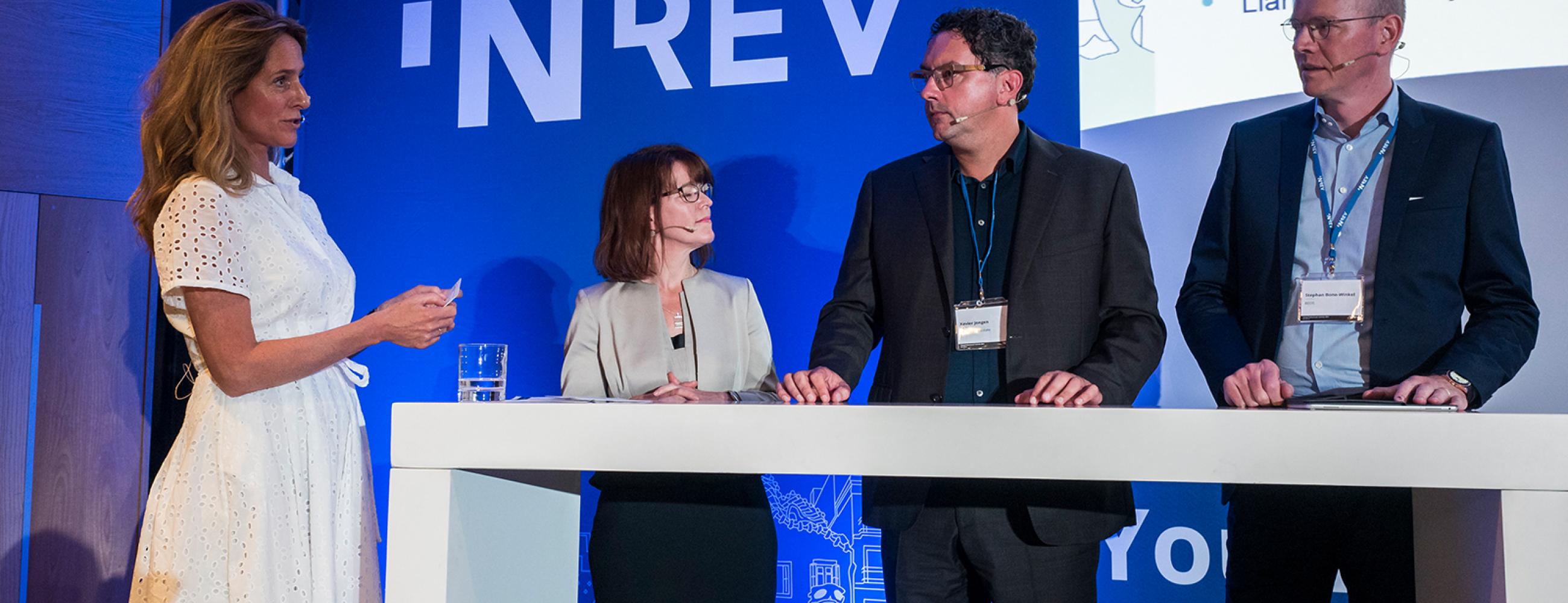
Serena Althaus, Ferguson Partners Europe, presented and moderated a panel discussion on how real estate can become a more attractive industry for emerging professionals, with Stephan Bone-Winkel, BEOS, Xavier Jongen, Catella Real Estate, and Lianne Spurway, LaSalle Investment Management. According to Serena, some people still have negative perceptions of the real estate industry from the Global Financial Crisis.
When asked what motivated you to join the real estate industry, 32% of respondents answered that a member of family or family friend who was / is in real estate, followed by 24% who were inspired by a university course. Panelists highlighted that this was a symptom of the problem: real estate is viewed as an insider’s club. Traditional, male-dominated and innovation-poor.
When asked what is the most important thing to you when taking on a job, the audience’s responses were not very aligned with millennials. Top answers from delegates were a broad range of experiences (34%), accelerated career path (28%) and work / life balance (19%), compared with millennials who prioritise (1) time with family, (2) growing and learning new things, (3) living a long and healthy life and (4) having a successful career.
Serena asserted that by infusing the progressive spirit of technology into real estate, the industry can go a long way to improving the sector’s attractiveness to millennials. Although panelists disagreed with over-generalising an entire generation into ‘Millennials’, there was agreement that the real estate sector needs to start looking outward and reach out to people who are not currently thinking about real estate. Diversity – especially gender diversity – needs to be better addressed in the industry.
After a summary of the day, attendees spent the evening touring the Gothic Quarter of Barcelona, which was followed by dinner and drinks at the beach.
Viva la España: The future is now
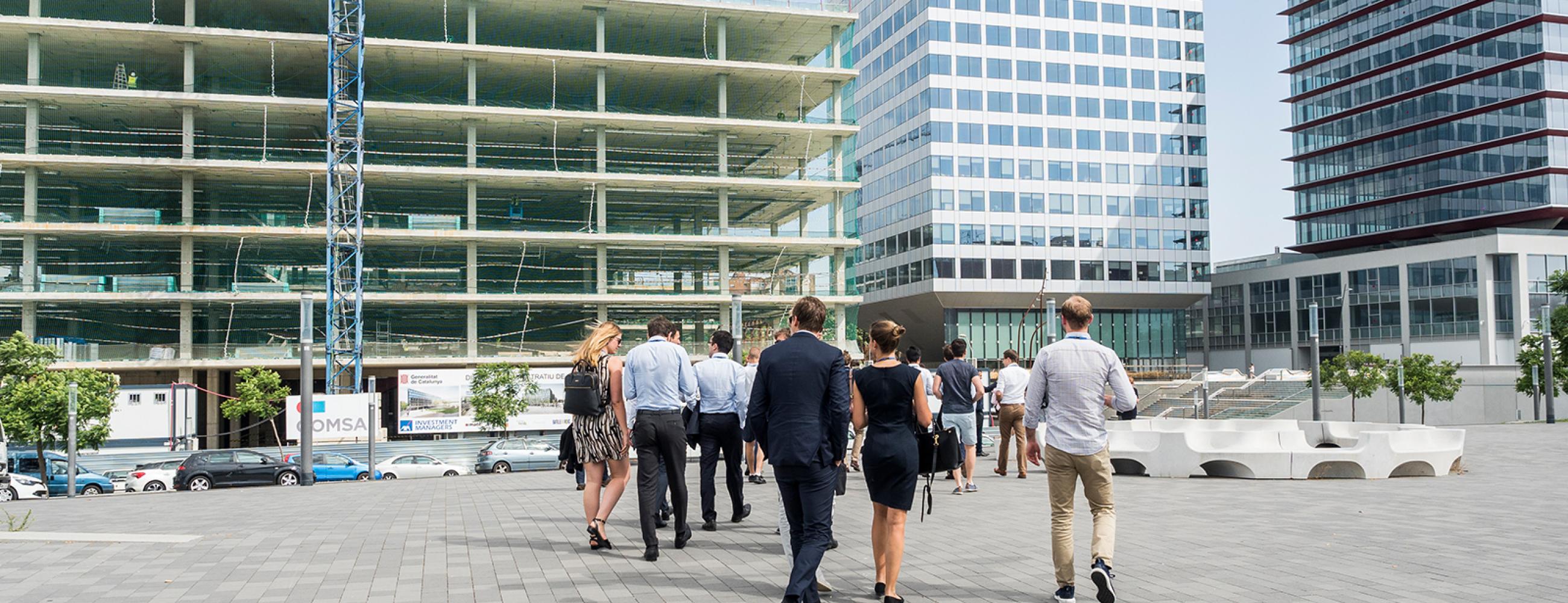
After a networking breakfast, Albert Gil Margalef, Architect from Batlle | Roig Arquitectes took delegates on a bird’s eye view of the evolution of Barcelona up until now, and where it is going in the coming years. Essentially, Barcelona is merging public space, nature and production – focusing on metropolitain parks, the sea, mountains and rivers, and revitalising industrial areas.
Two current developments that are part of this re-shaping of Barcelona are AXA Generalitat and Viladecans The Style Outlets. Delegates had the opportunity to see a presentation and tour of the properties, which are both located in former industrialised areas, are connected to a wider public space network, and are using biophilic design and other sustainability and well-being principles in their design.
AXA Generalitat is the largest office development in Spain – a 58,000 m2 office complex due for completion in Autumn 2018 which will bring together all offices of the local authority into one location. The property is targeting both LEED Platinum and WELL certification, and is using Building Information Modelling to coordinate the development – an example of technology improving efficiency and aiding the process of development. Hines is the manager of the complex which is being developed on behalf of AXA Investment Managers and fully pre-leased to the Regional Government.
Viladecans The Style Outlets opened in October 2016, this is NEINVER’s first project in the Catalonia region and its sixth outlet in Spain. The centre, developed by the joint venture between NEINVER and TH Real Estate with an investment of more than €80 million is strategically located in the Greater Barcelona area.